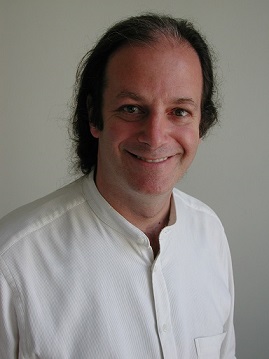
Prior to the 1960s, the United States mental health budget was primarily spent providing treatment to people with serious mental illnesses. Today, we’ve largely abandoned the most seriously mentally ill and used the budget for everyone else.
As a result of this shift, about 200,000 mentally ill are homeless, 240,000 seriously mentally ill are in prisons, and 125,000 are in jails. That’s more than three times as many as are in hospitals. In 1955, there were half a million public psychiatric beds for the seriously ill – which translated to 340 beds per 100,000 individuals. Today, there are less than 100,000 beds – which translated to 17 beds per 100,000 individuals. Because of this shortage, it’s harder to get into Bellevue than Harvard.
Anyone well enough to walk in and ask for treatment is not sick enough to be admitted. That makes involuntary admission – becoming a “danger to self or others” — the only path to treatment. Hence, the “psychotic killer on a rampage” headlines we seem to be seeing so often these days. Community programs are no better. They largely accept the highest functioning and offload the most seriously ill to shelters, jails, prisons, and morgues. Programs that used to spend money treating those with serious mental illnesses now spend those same dollars on stigma campaigns for those without any mental illness.
In 1955, there were half a million public psychiatric beds for the seriously ill. Today, there are less than 100,000 beds. Because of this shortage, it’s harder to get into Bellevue than Harvard.
Most people with mental illness are not more violent than others. The same cannot be said, however, for the most seriously ill. Up to 50 percent of the three million people with schizophrenia have anosognosia. As a result of their illness, hallucinations and delusions trump reality and prevent them from recognizing they are ill. Not knowing they are ill, they refuse voluntary treatment. John Hinckley “knew” the best way to get a date with Jodie Foster was to shoot Ronald Reagan. Russell Weston “knew” there was a “ruby red satellite” in the U.S. Capitol that could be used to reverse time and shot two guards in order to find it. When people are that seriously ill, voluntary services will not work. If you build it, they will not come. A kind, compassionate system would help the most seriously ill get care, rather than pretend they don’t exist.
Congress is being misled by the non-profit mental health industry, which argues that ordinary life events like bad grades, being unemployed, having an unhappy marriage and this year’s cause célèbre, bullying, are the mental illnesses worthy of Congressional funding. They ignore the homeless and psychotic who can’t get treatment, sleep on the streets, forage through dumpsters for food, and scream at voices only they can hear.
Money is not the problem – mission creep is. Mental health spending totaled $100 billion in 2003, representing 6.2 percent of all health care spending. By 2014, it is expected to double to $204 billion. The elephant in the room is getting treatment to the most seriously ill. Instead of treatment, the non-profit mental health industry argues for public education. This is based on the mistaken assumption that the reason people do not get care is because they are so asymptomatic that the public needs special training to identify them, and that — once identified — treatment will be available. Neither is true for the seriously ill. As Creigh Deeds learned, families can — and do — beg for treatment for loved ones already identified as being ill. And yet they still can’t get it.
Money is not the problem … The elephant in the room is getting treatment to the most seriously ill.
If Congress wants to improve care, save money and reduce violence by the seriously ill, it should decrease mental health funding and increase mental illness funding. Replace mission creep with mission control. That’s the idea behind HR 3717, the Helping Families in Mental Health Crisis Act. Introduced this past December by Rep. Tim Murphy (PA-18), the legislation would:
- Get treatment to people who are too sick to accept voluntary treatment — HR 3717 funds demonstration Assisted Outpatient Treatment (AOT) projects. AOT is limited to the most seriously ill who have a past history of violence, incarceration or needless hospitalizations caused by going off treatment. It allows courts, after extensive due process, to order them to stay in mandated and monitored treatment as a condition of living in the community and, equally important, order community programs to provide the care rather than turn them away. New York’s AOT program (also known as “Kendra’s Law”) reduced homelessness, arrest, and incarceration in excess of 75% each and cut costs in half by reducing the use of more expensive incarceration and hospitalization. The Department of Justice certified AOT as an “effective crime prevention program.”
- Free parents of seriously mentally ill from HIPAA Handcuffs — Parents need information about the diagnosis, treatments and pending appointments of their children in order to facilitate care. But doctors hide behind federal privacy standards passed as part of the Health Insurance Portability and Accountability Act (HIPAA) and patient confidentiality laws included in the Family Educational Rights and Privacy Act (FERPA) to prevent parents from receiving it. School authorities identified Jared Loughner as being mentally ill and potentially dangerous before he shot Gabrielle Giffords, but HIPAA and FERPA laws kept his family in the dark. HR 3717 writes exceptions into the law so that won’t happen again.
- Create an Assistant Secretary for Mental Health and Substance Abuse Disorders – More than anything, this individual is needed to end mission-creep, reduce duplication, coordinate piecemeal federal agencies and stop the federal funding of non-evidenced based programs. But beyond that, the new Assistant Secretary would also be a champion of programs that help the most seriously ill, and help disburse mental health block grants previously distributed by the Substance Abuse and Mental Health Services Administration (SAMHSA) in order to free states from SAMHSA policies that prevent those funds from reaching the most seriously ill.
- Require SAMHSA and CMHS to focus on serious mental illness — HR 3717 makes what should be non-controversial reforms to SAMHSA and CMHS. Among other things, it requires all grants to be evidence-based, reviewed by persons with clinical experience in mental health treatment, and prohibits SAMHSA from making grants not authorized by Congress. These reforms are needed because SAMHSA and CMHS fail to focus on serious mental illness, fund programs that lack independent evidence of effectiveness, and award taxpayer money to organizations that lobby against treatment for the most seriously ill. For example, in spite of the fact that getting the correct diagnosis is key to getting the right medication, SAMHSA distributes millions to “peer” groups that believe “psychiatric labeling is a pseudoscientific practice of limited value in helping people recover.”
- Preserve psychiatric hospital beds — HR 3717 rejects the mental health industry shibboleth that everyone can survive safely in the community by preserving a few inpatient psychiatric beds for those who can’t.
- Increase the role of the criminal justice system in setting mental health policies — Many of the policies espoused by the non-profit mental health industry, like closing hospitals and making civil commitment more difficult, increase the incarceration of people with serious mental illness. HR 3717 gives criminal justice powerful representation on federal advisory boards so they can prevent these policies from being adopted.
Many of the policies espoused by the non-profit mental health industry, like closing hospitals and making civil commitment more difficult, increase the incarceration of people with serious mental illness.
- Refocus PAIMI – PAIMI stands for the Protection and Advocacy for Individuals with Mental Illness Program. Established with the noble purpose of providing representation to persons with serious mental illness who were being abused, the program has morphed into a political advocacy machine that ignores the psychotic and assumes all persons with mental illness are well enough to “self-direct” their own care. PAIMI lawyers “freed” William Bruce from involuntary hospital care over the objections of his Mom and Dad. William then killed his Mom. HR 3717 returns PAIMI to its original focus of helping people who need help, and prohibits PAIMI groups from using federal funds to lobby for other agendas.
- Empower NIMH — Under Dr. Thomas Insel, the National Institute of Mental Health has forsaken mission creep and now focuses on serious mental illness. HR 3717 turns over certain funds that were misspent by SAMHSA to NIMH, so they can find cures for serious mental illness.
HR 3717 is supported by mainstream mental health organizations like the American Psychiatric Association, American Psychological Association, and Treatment Advocacy Center. It is supported by major law enforcement organizations including the National Sheriff’s Association, and New York State Association of Chiefs of Police. And it has passionate support among families of the seriously mentally ill. The only opposition comes from those who have benefitted from the mission creep or run programs that lack evidence of efficacy.
There is a crisis. It involves people with untreated serious mental illness, not all others. Throwing money at mental health as Congress has done will not help those with serious mental illness. Passing HR 3717 is the best chance Congress has at addressing the real problem.
DJ Jaffe is Executive Director of Mental Illness Policy Org., a non-partisan, science-based think tank focused on serious mental illness (not mental health).




